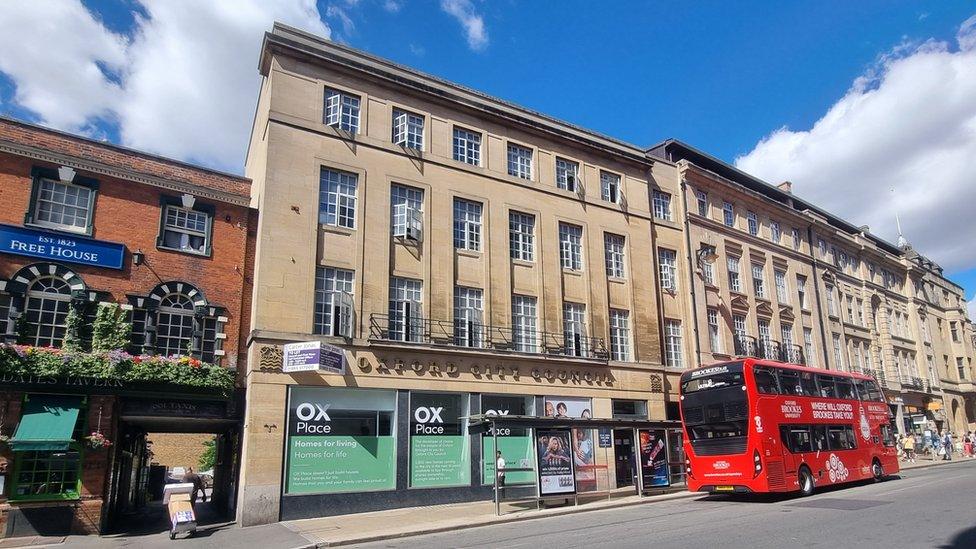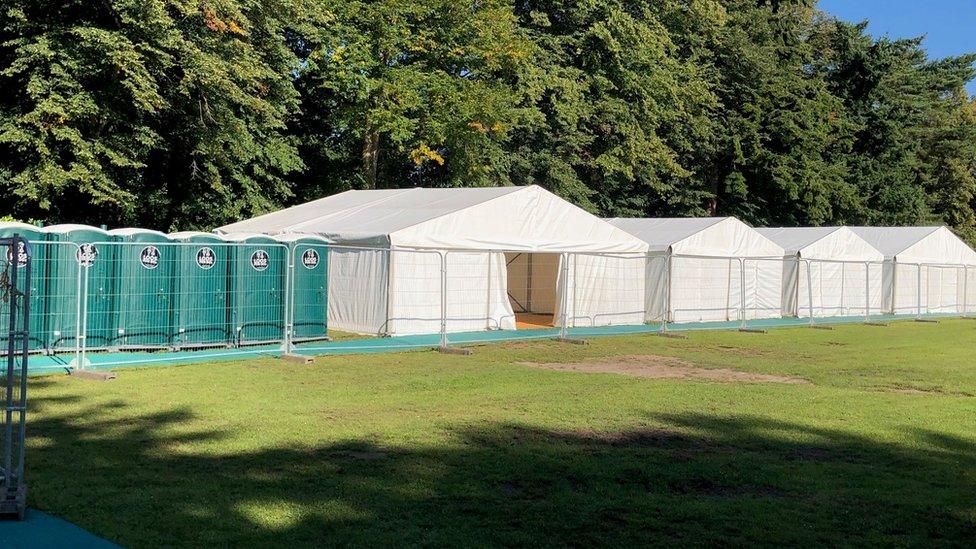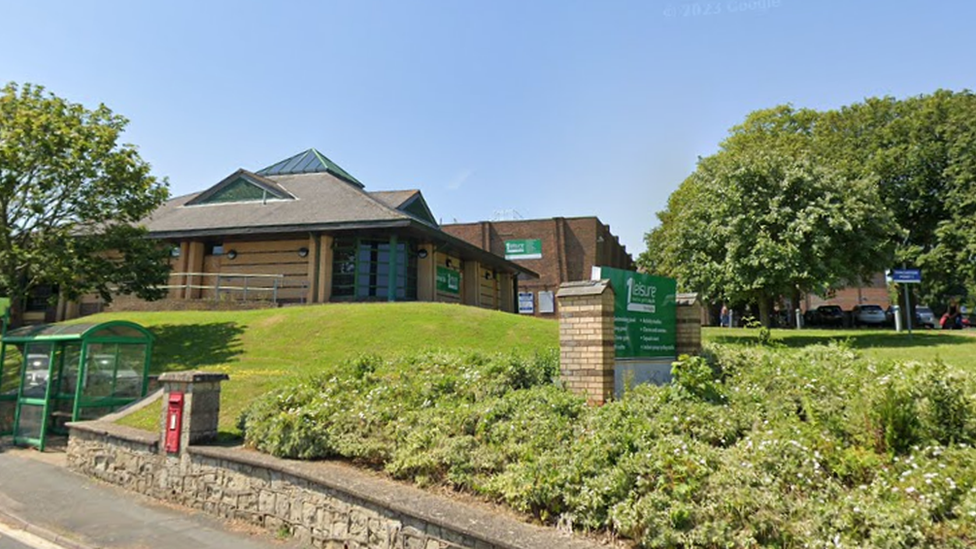Oxford housing blocks may have Raac concrete, council says
- Published

Oxford City Council said it will be inspecting public buildings for Raac over the next three months
A council will carry out inspections as "a matter of urgency" to determine whether any of its buildings contain unsafe concrete.
Oxford City Council said some of its post-war public buildings, including housing blocks, community centres and leisure centres could be affected.
It said it will take "appropriate action to manage any risks".
Safety fears were first raised over the use of reinforced autoclaved aerated concrete (Raac) in UK schools.
A spokesperson said the council had already identified the issue before the current crisis, and will undertake planned inspections over the next three months.
Raac is a lightweight material that was used mostly in flat roofing, but also in floors and walls, between the 1950s and 1990s.
It is a cheaper alternative to standard concrete, is quicker to produce and easier to install, but it is less durable and has a lifespan of around 30 years.
If Raac is found the council said it will "undertake a condition survey" and take action to address any possible risks.
Elsewhere in Oxfordshire, the county council confirmed that no council-run schools contained Raac, but a number of academies have been impacted.
South and West Oxfordshire Council said they have not identified any council properties containing Raac.
And South Oxfordshire and Vale of White Horse District Councils, said: "Our approach is purely a matter of caution and diligence given the national situation."
The government said it has been aware of Raac in public sector buildings since 1994.
In 2018, it published guidance about the need for adequate contingencies to be in place in case buildings needed to be vacated at short notice.

Follow BBC South on Facebook, external, Twitter, external, or Instagram, external. Send your story ideas to south.newsonline@bbc.co.uk, external.
- Published6 September 2023

- Published5 September 2023
